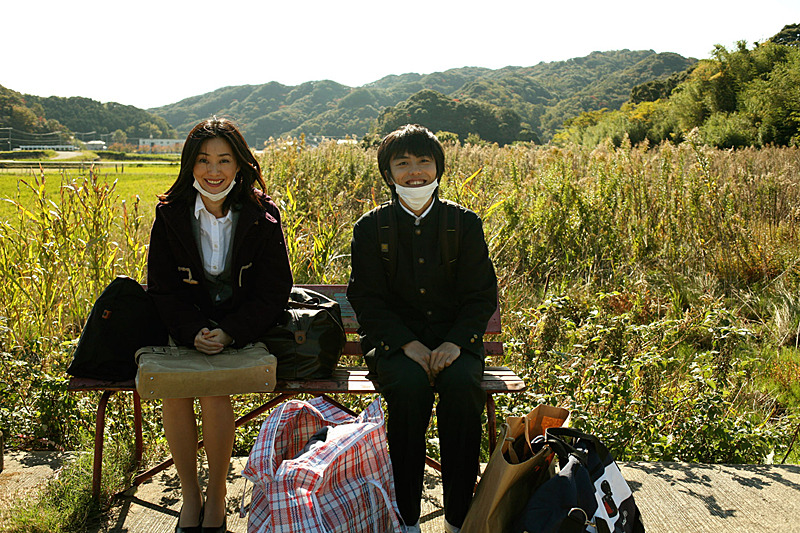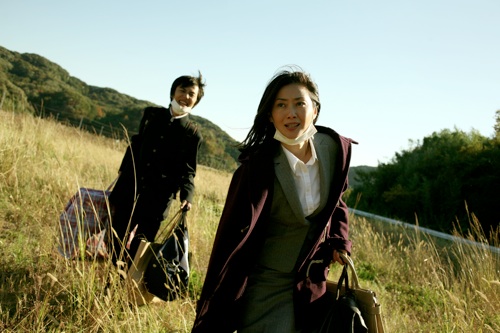
Although it would be a stretch to denounce To Walk Beside You as a mistranslation of the original Japanese title, a direct translation would offer slightly different connotations; Kimi to arukou means I’ll walk with you. The fact is, there are no leaders amongst Yuya Ishii’s troupe of misguided loners, they require each others’ company to stay stable, strong, and in some cases sober.
The film opens with country boy Norio and his teacher Akemi, an odd couple, running away from the countryside to pursue another life in Tokyo, setting itself up as a runaway road-trip feature with love that defies logic and disregards the law. Yet these familiar generic tropes are quickly abandoned as, although the centre of our attention, nobody seems to care or notice that the twosome have disappeared. Once in the city, their anonymity continues until they encounter some fellow loners and construct a support network. The tender comedy emerges from strange situations the outcasts find themselves in and their attempts to stay in touch with their own realities.
 The director explained that, “The characters in Rakugo stories are usually very nice people, but they always make mistakes. I wanted to make a simple comedy with the subtle nuance of Rakugo. Life’s ludicrousness and pathos are two sides of the same coin.” Indeed, Ishii’s comedy is simple, but decidedly lacks the subtlety that he celebrates in Rakugo, a performance of storytelling-comedy full of sharp puns and cutting wordplay. Most of the humour is juvenile and offbeat (situations involving dog excrement for example), and the heightened kook begins to irritate after repeated offerings. Furthermore, Ishii’s dramatic construction and storytelling pace lacks the dexterity Rakugo artists often ooze effortlessly.
The director explained that, “The characters in Rakugo stories are usually very nice people, but they always make mistakes. I wanted to make a simple comedy with the subtle nuance of Rakugo. Life’s ludicrousness and pathos are two sides of the same coin.” Indeed, Ishii’s comedy is simple, but decidedly lacks the subtlety that he celebrates in Rakugo, a performance of storytelling-comedy full of sharp puns and cutting wordplay. Most of the humour is juvenile and offbeat (situations involving dog excrement for example), and the heightened kook begins to irritate after repeated offerings. Furthermore, Ishii’s dramatic construction and storytelling pace lacks the dexterity Rakugo artists often ooze effortlessly.
The beauty of To Walk Beside You is its ability to maintain an undertone of darkness throughout its often exaggerated attempts at generating laughter. Norio’s parents have killed themselves, Norio himself has attempted suicide, the 7-year old they meet has been abandoned by his parents and so on. Most narratives would vulture onto such opportunities for melancholy, but Ishii leaves it as background noise, occasionally noticeable but mostly ignored. With his next film, Sawako Decides playing at Rotterdam, Berlin and London Film Festival this year, it seems we will certainly see more of Ishii in the future. Although Ishii has shown promise, I feel he must refine his style, camerawork and editing – indie filmmaking is no excuse for being lazy.


